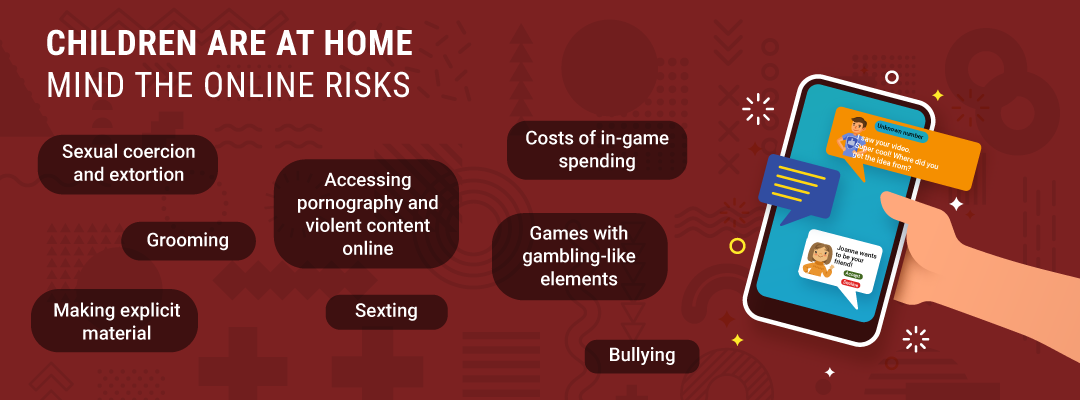WHAT HAS THE COVID-19 PANDEMIC CHANGED?
The global impact of COVID-19 means people are spending more time online. This includes both children and adults.
Adults working remotely are less able to spend time with their children, who are allowed greater unsupervised internet access. As a result, children are:
more exposed to offenders through online gaming, the use of chat groups in apps, phishing attempts via email, unsolicited contact in social media and through less secure online educational applications;
more inclined towards making explicit material to exchange with peers, eventually reaching child sex offenders;
in some cases, becoming lonely and isolated, which offenders try to benefit from, connecting with them to produce explicit material or to arrange a meeting in real life.
WHAT CAN I DO AS A PARENT?
While the majority of children can use the internet safely – staying in touch with their peers and studying – it’s important to be aware of the risks they face when going online, such as grooming, sexual coercion and extortion, sexting, bullying or accessing harmful content.
By taking these steps and keeping an eye on what your child is doing online, you can reduce the risks.
What can I do as a carer/teacher?
Engage with pupils online – allow them to speak confidentially to you.
Report any signs of abuse as you would do normally, through the appropriate channels.
Be aware of internet risks as you are also at risk of phishing and scams to collect your data and that of your students.

